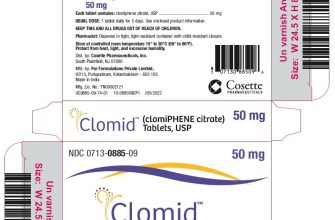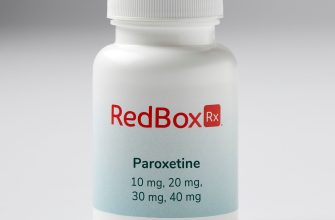If you’re dealing with allergies, Singulair (Montelukast) might be the solution you’ve been looking for. This prescription medication effectively reduces allergy symptoms by blocking certain substances in the body known to trigger these responses. Talk to your healthcare provider about how Singulair can fit into your treatment plan, particularly if you have asthma or seasonal allergies.
Singulair works by targeting leukotrienes, which are chemicals produced by the immune system during allergic reactions. By inhibiting these chemicals, it helps alleviate symptoms such as sneezing, congestion, and itching. Many patients report significant improvement in their overall quality of life after starting this medication.
For best results, adhere to your doctor’s dosage instructions. Singulair is typically taken once daily at the same time to maintain consistent levels in your system. Be sure to discuss any potential side effects with your doctor and report any unusual symptoms. Singulair can be a powerful ally in managing allergy symptoms, allowing for a more comfortable and active lifestyle.
- Singulair Prescription Allergy
- Indications
- Dosage and Administration
- Understanding Singulair: What It Is and How It Works
- Common Conditions Treated by Singulair
- Dosage Guidelines for Singulair in Allergy Management
- Potential Side Effects and Risks of Using Singulair
- Who Should Avoid Singulair: Contraindications and Precautions
- Medical Conditions to Consider
- Age Considerations
- Consulting Your Doctor: Questions to Ask About Singulair
- Interactions and Alternatives
- Monitoring and Follow-Up
Singulair Prescription Allergy
Consult your healthcare provider before starting Singulair (Montelukast) for allergic symptoms. This medication specifically targets allergies and asthma by blocking leukotrienes, which can help reduce inflammation and bronchoconstriction.
Indications
Singulair is prescribed for seasonal allergic rhinitis, perennial allergic rhinitis, and chronic asthma. It is particularly useful for individuals who have not achieved adequate relief with traditional antihistamines. This medication can also assist those suffering from exercise-induced bronchoconstriction.
Dosage and Administration
Follow your doctor’s dosage instructions carefully. Typically, adults and children ages 15 and older take 10 mg once daily in the evening. For children aged 6 to 14, the recommended dose is 5 mg, and for children aged 2 to 5, it’s 4 mg. It’s essential to take the medication at the same time each day for optimal results.
Monitor for side effects such as mood changes or sleep disturbances. If any severe reactions occur, contact your healthcare provider immediately.
Understanding Singulair: What It Is and How It Works
Singulair, or montelukast, is a medication primarily used to manage allergies and asthma symptoms. It inhibits leukotrienes, which are chemicals in the immune system that trigger inflammation and allergic reactions. By blocking these substances, Singulair reduces swelling and helps prevent airway constriction.
This prescription medication is available in various forms, including chewable tablets and film-coated tablets, making it accessible for both children and adults. It’s typically taken once a day, with or without food, which adds convenience to daily routines.
Patients often notice a decrease in seasonal allergies, including sneezing, congestion, and runny nose, within the first day or two of treatment. For asthma, Singulair helps to prevent attacks and improves overall lung function, leading to fewer rescue medication needs. It’s a valuable addition for those with exercise-induced bronchoconstriction, providing protection during physical activity.
Common side effects may include headache, stomach pain, and fatigue. Although rare, some individuals may experience mood changes or allergic reactions. Regular follow-ups with a healthcare provider can ensure the medication is working effectively and safely, allowing for timely adjustments as needed.
Consult with a healthcare professional for personalized advice and to determine if Singulair is the right choice for your allergy management or asthma control. This medication plays a significant role in improving quality of life for many individuals with respiratory conditions.
Common Conditions Treated by Singulair
Singulair (montelukast) treats several conditions effectively. It mainly manages asthma symptoms, helping to prevent bronchoconstriction and reduce inflammation in the airways. Patients commonly experience fewer asthma attacks and improved lung function with regular use of this medication.
Allergic rhinitis, often referred to as hay fever, is another condition Singulair targets. It alleviates symptoms like sneezing, runny nose, and nasal congestion. This relief is especially beneficial during allergy seasons or in environments with high allergen levels.
Children benefit significantly from Singulair for both asthma and allergy management. It enhances their daily activities by reducing the occurrence of allergy-related symptoms and improving their overall respiratory health.
Additionally, Singulair can assist patients suffering from exercise-induced bronchoconstriction. Taking the medication before physical activity minimizes the risk of asthma symptoms during exercise, allowing for a more enjoyable experience.
Consult with a healthcare provider to determine the appropriate use of Singulair for individual health needs and conditions. Proper dosage and adherence ensure optimal outcomes in managing asthma and allergies.
Dosage Guidelines for Singulair in Allergy Management
For adults and children aged 15 years and older, the recommended dose of Singulair is 10 mg once daily, taken in the evening. This dosage helps control symptoms of allergic rhinitis and seasonal allergies effectively.
Children aged 6 to 14 years should take 5 mg of Singulair once daily in the evening. The chewable tablet formulation is suitable for this age group, making it easier for kids to take their medication.
For children aged 2 to 5 years, the recommended dosage is 4 mg daily, also taken in the evening. This dosage can be administered in the form of a granule for mixed-use, allowing for flexibility in administration.
When prescribing Singulair:
- Assess the patient’s age and weight to confirm appropriate dosing.
- Advise patients to take Singulair at the same time each day for optimal results.
- Reevaluate the patient’s response after a few weeks of continuous use to determine if adjustments are necessary.
Healthcare providers may consider adjusting the dosage based on the patient’s specific needs, especially if they are also managing asthma symptoms. Adjustments should always be made in consultation with a medical professional.
Monitor patients for potential side effects, which may include headache, stomach pain, and fatigue. If side effects are severe or do not improve, consult a healthcare provider for advice.
It is essential to maintain open communication about any coexisting conditions and other medications being taken to ensure safe and effective allergy management.
Potential Side Effects and Risks of Using Singulair
Singulair, commonly prescribed for allergies and asthma, may cause varied side effects. Users should be aware of potential reactions ranging from mild to severe.
Common side effects include headache, dizziness, abdominal pain, and fatigue. These usually appear shortly after initiating treatment and may diminish over time. Staying hydrated and managing dosage with a healthcare provider can help alleviate some discomfort.
More serious side effects warrant attention. Behavioral changes, mood swings, anxiety, and depression have been reported among some users. If you notice any dramatic changes in mood or behavior, consult your doctor immediately. It’s crucial to monitor emotional well-being during treatment.
Respiratory issues, including increased frequency of asthma attacks or shortness of breath, may occur in rare cases. Users should report any respiratory changes to a healthcare professional promptly.
Allergic reactions, though uncommon, can happen. Signs include skin rash, itching, swelling, or difficulty breathing. If any of these symptoms arise, seek medical help without delay.
Interactions with other medications can complicate treatment. Always inform your doctor about all medications and supplements you are taking to prevent adverse reactions.
Regular follow-ups with your healthcare provider ensure effective monitoring of side effects. Adjustments to your treatment plan may enhance comfort and safety.
Understanding potential risks aids in making informed decisions about allergy management strategies. Always prioritize communication with your healthcare provider regarding your experiences with Singulair.
Who Should Avoid Singulair: Contraindications and Precautions
Individuals with hypersensitivity to montelukast, the active ingredient in Singulair, should not use this medication. Additionally, those with a history of allergic reactions to any components of the formula are advised to seek alternative treatments. Pregnant or breastfeeding women must consult healthcare professionals before starting Singulair.
Medical Conditions to Consider
Patients with severe hepatic dysfunction must avoid Singulair due to potential liver-related adverse effects. Those with active or chronic liver diseases should also discuss concerns with their doctor before prescribing this medication.
Age Considerations
Children under the age of two should not be prescribed Singulair. For pediatric patients aged 2 to 5, it is crucial to follow dosage guidance strictly to prevent possible side effects. Always reassess the necessity of Singulair in younger populations with special attention to potential risks.
| Condition | Recommendation |
|---|---|
| Hypersensitivity to Montelukast | Avoid use |
| History of Allergic Reactions | Consult a doctor |
| Severe Hepatic Dysfunction | Avoid use |
| Children under 2 years | Do not prescribe |
| Pregnant or Breastfeeding | Consult a doctor |
Always discuss your complete medical history and any ongoing treatments with your healthcare provider to ensure the safe use of Singulair.
Consulting Your Doctor: Questions to Ask About Singulair
Discuss the specific allergies or asthma symptoms you experience. Ask your doctor how Singulair can help address these issues. Clarify the dosage and timing for optimal effectiveness. Inquire about potential side effects. Understanding what to expect will help monitor your reaction to the medication.
Interactions and Alternatives
Ask about potential interactions with other medications or supplements you take. This is crucial to avoid unwanted effects. Explore alternative treatments for your allergies or asthma, ensuring you understand why Singulair is recommended over other options.
Monitoring and Follow-Up
Ask how often you should schedule follow-up appointments to monitor your progress. Discuss signs that indicate you may need to adjust your treatment. Keep the dialogue open to ensure your management plan remains effective as your condition changes.








